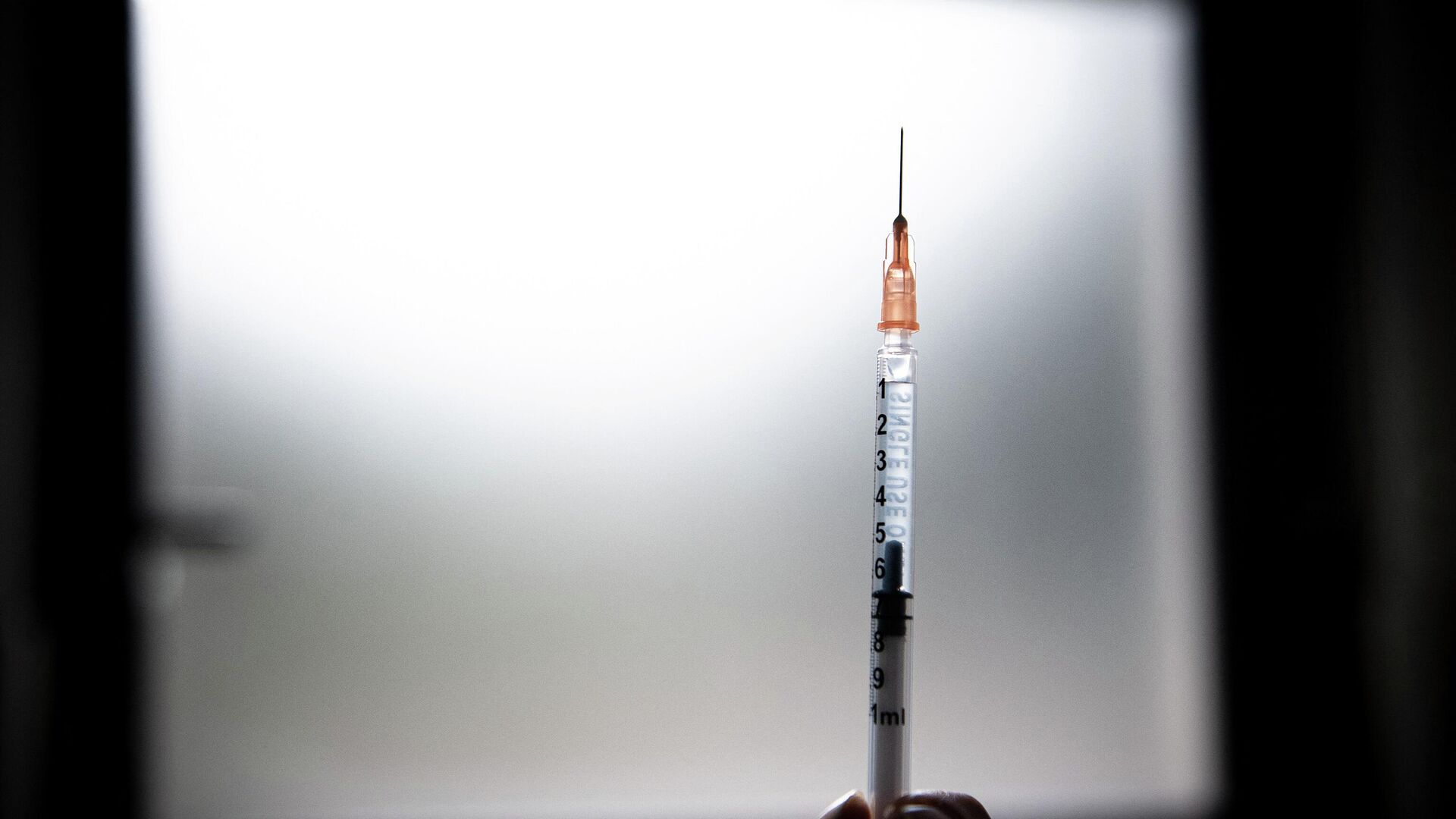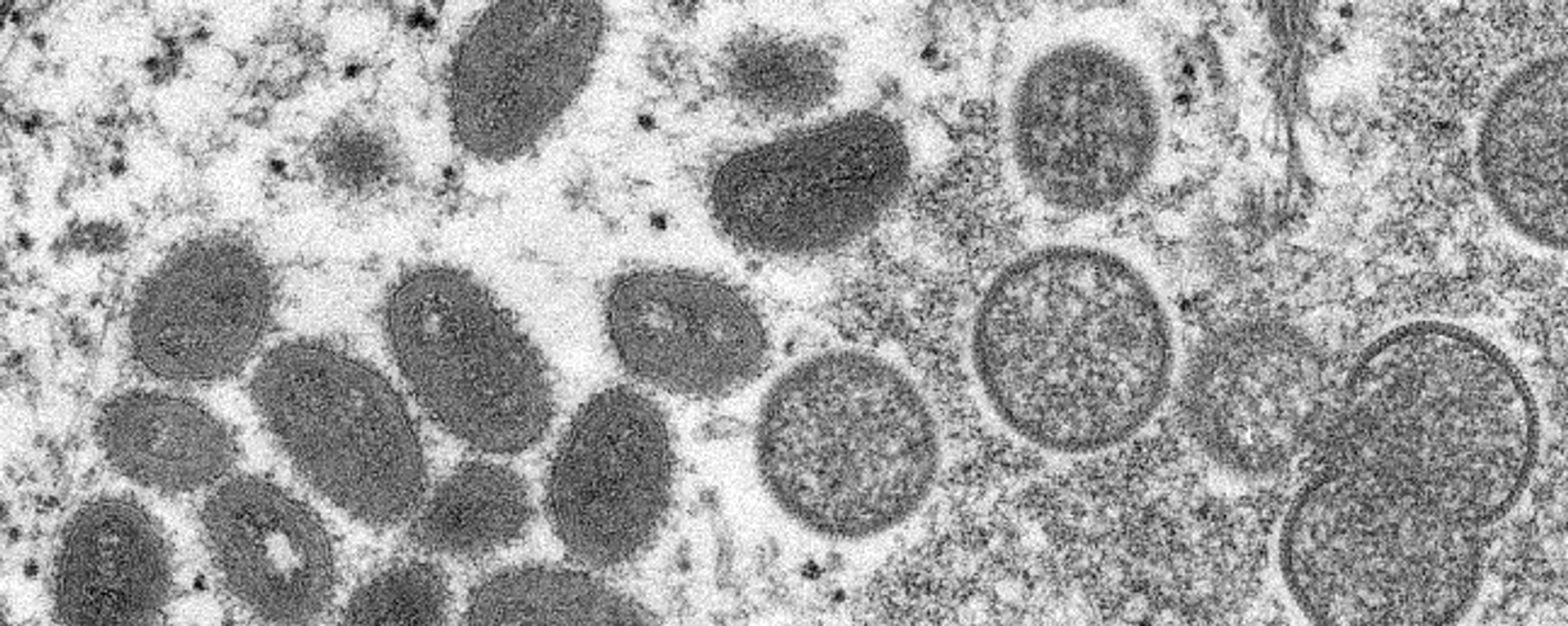https://sputnikglobe.com/20220815/who-says-no-need-for-immediate-mass-vaccination-against-monkeypox-1099624372.html
WHO Says No Need for Immediate Mass Vaccination Against Monkeypox
WHO Says No Need for Immediate Mass Vaccination Against Monkeypox
Sputnik International
WASHINGTON (Sputnik) – The World Health Organization does not see an immediate need for mass vaccination against monkeypox, WHO technical lead on the issue... 15.08.2022, Sputnik International
2022-08-15T16:00+0000
2022-08-15T16:00+0000
2022-08-15T16:00+0000
science & tech
world health organization (who)
monkeypox
vaccination
https://cdn1.img.sputnikglobe.com/img/07e6/07/1c/1097901172_0:0:3072:1728_1920x0_80_0_0_8e4f2c3421089289e349ded0a2be2e59.jpg
"Mass vaccination is not recommended for monkeypox response. There is no reason to support that at the moment, and it is not looking like it is going to change in the immediate future," Lewis said in a virtual conversation with The Washington Post.She underscored the need to prioritize vaccine distribution and other countermeasures, along with access to testing. "We need to prioritize based on public health needs. The same goals for the global level and for the national level," she added.Lewis called on governments to provide vaccines and medical aid to people who are already at high risk.In July, WHO Director-General Tedros Adhanom Ghebreyesus announced that the global monkeypox outbreak represents a public health emergency of international concern.Most people usually recover from monkeypox within a few weeks without treatment. The symptoms are initially flu-like, such as fever, chills, and swollen lymph nodes, which are then followed by a widespread rash. According to the WHO, the disease can be more severe in young children, pregnant women, and individuals who are immunocompromised.The monkeypox virus is not easily transmitted and usually spreads through close physical contact, including sexual contact, with an infected individual. The virus can enter a human body through broken skin, the respiratory tract, eyes, nose and mouth, and via bodily fluids. Monkeypox is a zoonotic disease. It originates in animals like rodents and primates and occurs in remote parts of Central and West Africa.Over 31,000 cases of monkeypox have been reported worldwide across more than 70 countries, and 12 deaths have been attributed to the disease.
https://sputnikglobe.com/20220728/who-urges-people-to-reduce-number-of-sexual-partners-amid-monkeypox-outbreak-1097880916.html
Sputnik International
feedback@sputniknews.com
+74956456601
MIA „Rossiya Segodnya“
2022
Sputnik International
feedback@sputniknews.com
+74956456601
MIA „Rossiya Segodnya“
News
en_EN
Sputnik International
feedback@sputniknews.com
+74956456601
MIA „Rossiya Segodnya“
Sputnik International
feedback@sputniknews.com
+74956456601
MIA „Rossiya Segodnya“
science & tech, world health organization (who), monkeypox, vaccination
science & tech, world health organization (who), monkeypox, vaccination
WHO Says No Need for Immediate Mass Vaccination Against Monkeypox
WASHINGTON (Sputnik) – The World Health Organization does not see an immediate need for mass vaccination against monkeypox, WHO technical lead on the issue Rosamund Lewis said on Monday.
"Mass vaccination is not recommended for monkeypox response. There is no reason to support that at the moment, and it is not looking like it is going to change in the immediate future," Lewis said in a virtual conversation with The Washington Post.
She underscored the need to prioritize vaccine distribution and other countermeasures, along with access to testing. "We need to prioritize based on public health needs. The same goals for the global level and for the national level," she added.
Lewis called on governments to provide vaccines and medical aid to people who are already at high risk.
In July, WHO Director-General Tedros Adhanom Ghebreyesus announced that the global monkeypox outbreak
represents a public health emergency of international concern.
Most people usually recover from monkeypox within a few weeks without treatment. The symptoms are initially flu-like, such as fever, chills, and swollen lymph nodes, which are then followed by a widespread rash. According to the WHO, the disease can be more severe in young children, pregnant women, and individuals who are immunocompromised.
The
monkeypox virus is not easily transmitted and usually spreads through close physical contact, including sexual contact, with an infected individual. The virus can enter a human body through broken skin, the respiratory tract, eyes, nose and mouth, and via bodily fluids. Monkeypox is a zoonotic disease. It originates in animals like rodents and primates and occurs in remote parts of Central and West Africa.
Over 31,000 cases of monkeypox have been reported worldwide across more than 70 countries, and 12 deaths have been attributed to the disease.


